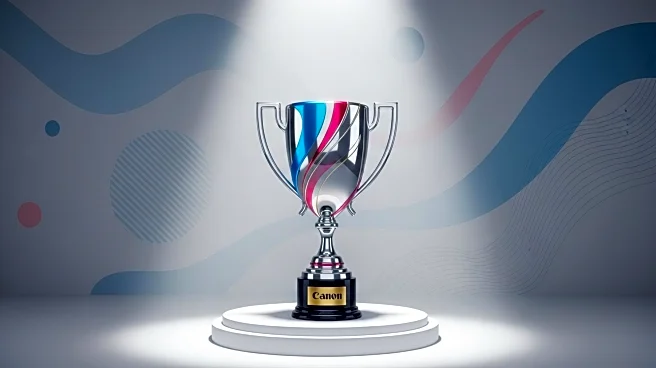What's Happening?
Victor Hugo and Nicky Rod led B-Team to a $1 million prize at the Craig Jones Invitational 2 in Las Vegas. The event featured a Quintet-style challenge where B-Team faced off against Team Australasia and New Wave. Hugo, a 5-time IBJJF world champion, played a crucial role by securing arm-triangle chokes in the semifinals, earning an additional $100,000. New Wave, after eliminating Team Americas and Atos, faced B-Team in the final. The final match was decided by judges' scorecards after a 47-47 draw, with Rodriguez's performance securing the victory for B-Team. Helena Crevar also won the first women's $100,000 tournament by defeating Sarah Galvao with a straight ankle lock.
Why It's Important?
The victory at CJI 2 highlights the competitive nature and skill level within the jiu-jitsu community. The substantial prize money underscores the growing financial incentives in martial arts competitions, potentially attracting more athletes to the sport. This event also showcases the strategic and physical prowess required to succeed in high-stakes tournaments, influencing training and preparation methods across the industry. The success of B-Team and individual athletes like Helena Crevar may inspire other teams and competitors to innovate and elevate their performance standards.
What's Next?
Following their victory, B-Team and its members may see increased opportunities for sponsorships and invitations to other prestigious competitions. The success of the event could lead to more Quintet-style challenges, promoting team-based jiu-jitsu formats. Athletes like Victor Hugo and Nicky Rod might leverage their wins to enhance their personal brands and secure further competitive engagements. The women's tournament success could encourage more female participation and investment in women's jiu-jitsu events.
Beyond the Headlines
The event's outcome may influence the perception of jiu-jitsu as a viable professional sport, with significant financial rewards. It could also impact the cultural acceptance and popularity of martial arts in mainstream sports. The strategic elements of team-based competitions might lead to new training methodologies and collaborative approaches within the sport. Additionally, the success of female athletes like Helena Crevar could contribute to gender equality in martial arts, encouraging more women to pursue competitive jiu-jitsu.










